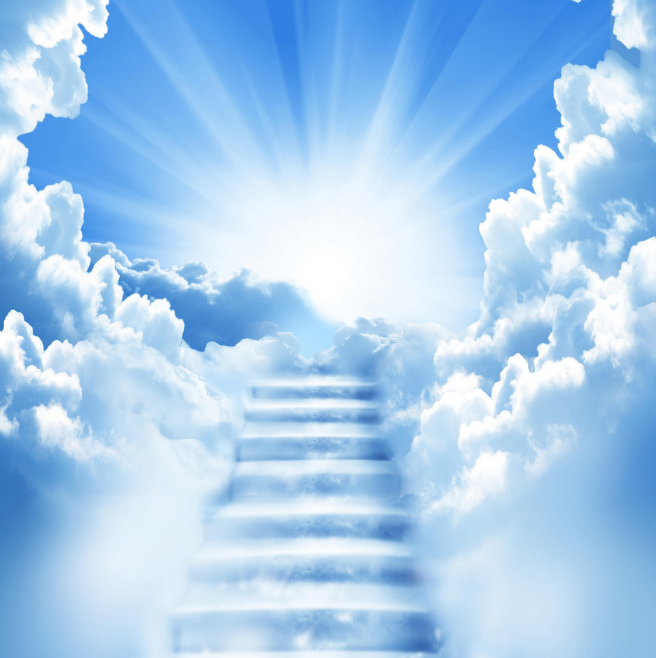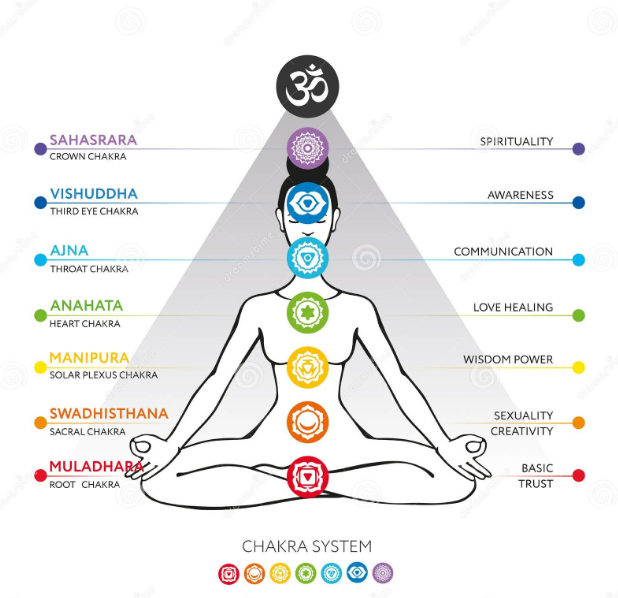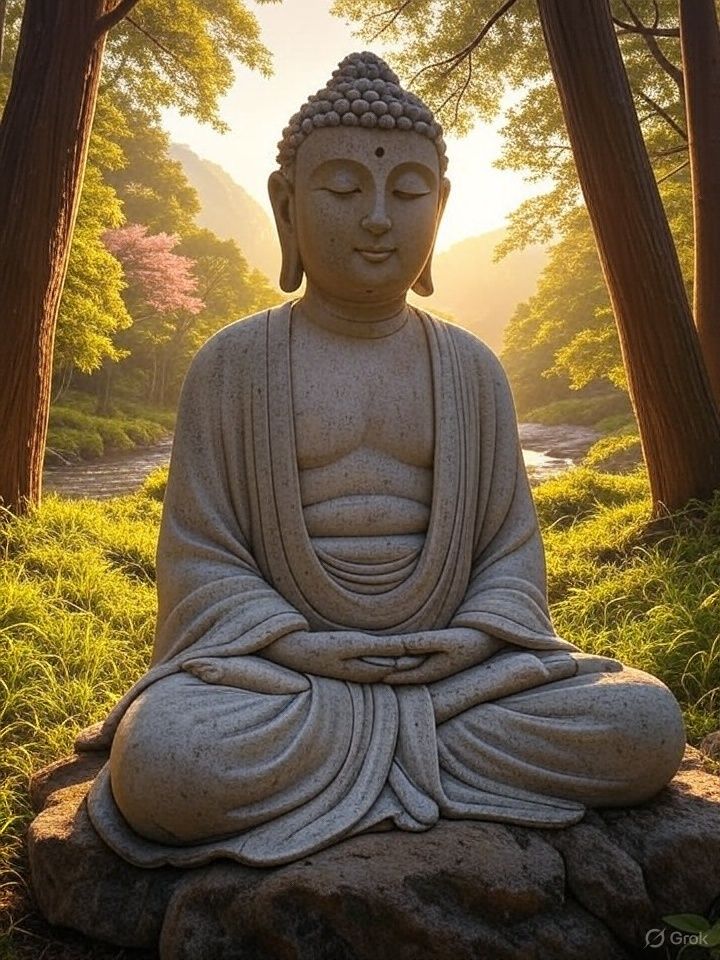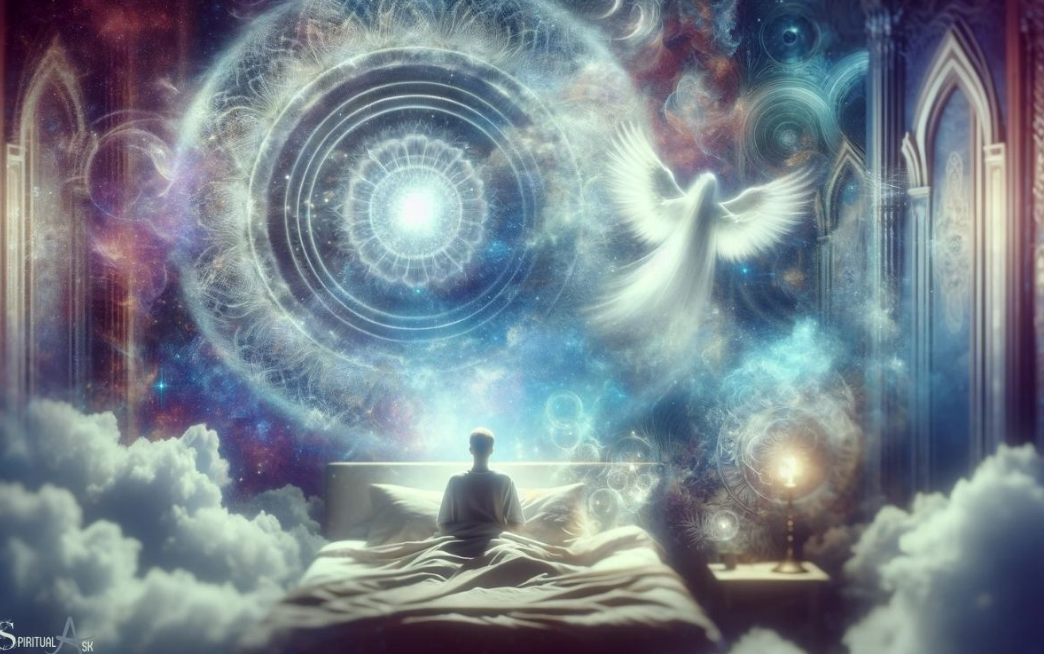These days it feels like death is all around us.
A lab leak with no public investigation into the source, mandated jabs that cause an array of health issues (some terminal), a "justice system" that releases violent criminals back onto the streets, programs like MAID that assist you in dying if you're constantly ill, or just feeling depressed by the state of the world.
These are some of the impetuses for this article, in which we will ponder what might happen to a person after death.

Near Death Experiences
If you're curious about what happens when you die, you might want to do a search on YouTube for near death experiences (NDE), where people recount their stories of nearly passing over to the other side.
In these situations, some people claim to have seen their entire life flash before their eyes, while others said they had an out-of-body experience, like rising above their physical body in a hospital bed or from the scene of an accident. Some claim to have come into contact with deceased loved ones, or to have been moving towards a white light.
Although these are fascinating recollections, one has to ask the question - were these people actually dead? Perhaps their heart stopped beating, and their lungs ceased to breath, making them technically deceased. But their brains were still intact, which could have produced a variety of sensations and visuals.
What these people experienced may have been the final moments of human life, and the beginning of a transition into Heaven or some other realm of existence, but they did not completely cross over, a process which would have been irreversible had their body fully decomposed.
We are left to wonder, what happens when there is no turning back?
What Happens When We Die?
There are many different schools of thought on this, and your beliefs are often biased, based on your upbringing. For example, if you were born and raised in a Midwestern American town, you are more likely to subscribe to protestant Christian beliefs. On the other hand, if you grew up in a small village in China, you are more likely to lean towards Buddhist values, and a child born in India would probably adopt Hindu ideology.
The majority of Christians have faith that all souls end up in either Heaven or Hell for eternity, depending on whether or not the person has accepted Jesus Christ. Hindus, on the other hand, believe that your soul leaves from one of your Chakras before entering into a state of transition. Buddhists think that your consciousness either reincarnates into another living being, or transcends into a state of enlightenment (Nirvana).

Trying To Explain The Inexplicable
Heaven is often described as something physical that we would be able to see, hear, touch and feel. For example, the scene of a person standing in the clouds at the gates of Heaven, awaiting judgement from God, who is often personified as an elderly man with long hair and a long beard. Conversely, Hell is illustrated as a pit of fire inhabited by a red devil with horns.
The problem with these scenarios is that they assume you'll have legs to stand on, nerve endings to feel pain, and a brain to interpret the senses. But our bodies decompose after death, so we will have nothing left with which to see, touch, or reason. What if these depictions of Heaven, Hell, God and Satan are just human imaginings of what happens after death?
What if death completely transcends the mind and the senses that we have experienced as humans on this planet?
Eternal States Of Energy
For example, what if Heaven and Hell were simply states of energy, rather than human-like experiences?
For example, if we choose love, compassion, and forgiveness throughout life then we enter into an eternal state of high energy (Heaven). On the other hand, if we opt for hate, cruelty, and resentment we enter into an eternal state of low energy (Hell).
The problem with this theory is we do not live in a constant state of positive or negative energy throughout our lives. Rather, we fluctuate between love and hate all the time.
What if we live 50% of our lives in hate and resentment (sin), and the other half feeling love and compassion (virtue), which eternal state would we end up in? Or does it only matter which state of energy you are in at the moment of death?
To take things one step further, what if there is no Heaven or Hell at all after death? What if life is actually a cycle, similar to how water evaporates from the sea, falls from the sky as rain into the rivers, and then flows back into the ocean?
Unlike Christianity and Islam, which believe in a Heaven and a Hell, Buddhism and Hinduism posit the idea that life is actually a cycle, and that your soul or consciousness is recycled (reincarnated) time and time again until you finally reach spiritual enlightenment.
Meditating to Experience Oneness
Perhaps in order to truly understand life, existence, and God, we must transcend the human experience we find ourselves in, and connect to the source of everything. That's where mindful meditation comes in.

Meditation is the state of being conscious of your thoughts and emotions, letting them go, and achieving a heightened state of awareness. To enter into a meditative state, focus on your breath, the sensations in your body, or the sounds around you. As thoughts come into your mind, simply accept and dismiss them, and return your attention to the senses.
If you manage to focus like this for an extended period of time, you may eventually enter into a state of pure consciousness in which your ego dissipates, and you transcend the self into "the whole". In this state, you connect with universal consciousness, and you may have a revelation that "you" (consciousness) are in fact one with everything.
This experience of "oneness" may be very close to what we experience after death. A pure sense of awareness and connection to everything in which we let go of the body and the ego. At this point after death, you may recall what it was like before you were born, or realize that you have experienced death thousands of times before.
The question is, does our consciousness retain any individuality at this point (a soul, for example), or does it simply return to the whole, like a wave crashing back into the ocean? Will "you" ever experience individual consciousness again, or will you realize that this human experience of yours was just a ray that fractured from a single source of light?
Perhaps we are thinking too much about death, and the answer is much more simple.
Dreaming, Deep Sleep, and Death
When we fall asleep our brains go through various phases.
In the dreaming stages, we experience a level of consciousness in which we can sense things and feel emotions. When we wake up, we realize the experience wasn't "real", even though it felt so at the time.
What if dying is like waking from a dream, in which we return to a higher state of consciousness (which we cannot fathom in our human form), and realize that this entire life experience wasn't actually "real".

There are also stages of "deep sleep" where we completely lose consciousness, sense absolutely nothing, and essentially black out.
Could these deep sleep phases be considered a "temporary death", and be very similar to what we experience when our life comes to an end?
The Many Possibilities
Considering all the insanity happening in today's world, death is on the minds of many, and lots of people are wondering what happens afterwards.
It's possible that we may enter into a Earth-like Heaven, free of pain and suffering. Conversely, we may end up in Hell for worshiping the wrong Messiah.
Another possibility is that our soul will reincarnate into another life form, or finally transcend into Nirvana - a blissful state of oneness with the universe.
Or the experience could be very much like waking from a dream, in which we feel a sense of relief that the illusion of life is finally over.
Finally, death could just be lights out forever - an eternal version of the deep sleep we experience in between our dreams every night.
It's important to keep in mind that right now we are stuck in the human realm, from which it is very difficult, if not impossible, to transcend and "see the forest for the trees".
At the end of the day, we all have our own unique perspectives and beliefs on death and what comes afterwards. The truth is we won't fully understand the transition until our time comes, and we experience for ourselves what's on the other side.
Until next time
If you found this article interesting, be sure to check out my other posts on crypto and finance here on the Hive blockchain. You can also follow me on InLeo for more frequent updates.
Sources
Image of Heaven [1] Chakras Image [2] Wake From Dream Image [3]